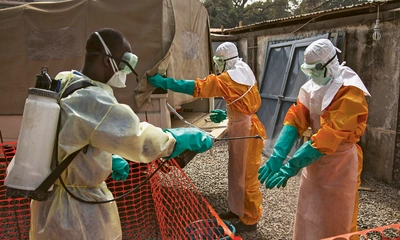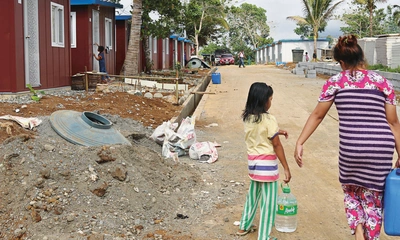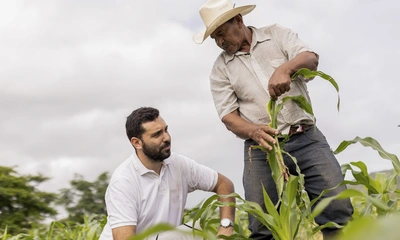Country Ownership Is Key to Effective Development
Country ownership is now recognised as a key element for effective development cooperation. Ambassador Thomas Gass, Co Chair of the Global Partnership for Effective Development Cooperation, explains why it is crucial in implementing the 2030 Agenda.

Between January 2018 and August 2022, Ambassador Thomas Gass led Switzerland's bilateral cooperation with the countries of the Global South. Before taking up his next post as Head of Mission in Vietnam, he will co-chair the GPEDC, Global Partnership for Effective Development Cooperation, until the end of 2022. Switzerland will host the GPEDC summit in Geneva from 12 to 14 December. This body brings together governments, international organisations, civil society, the private sector and trade unions. It aims to maximise the effectiveness of all forms of development cooperation in the common interest of people, the planet, prosperity and peace. In the city that was home to Calvin, these different players will address, in particular, the subject of country ownership, a key tenet for effective development. Thomas Gass explains the concept and its importance for implementing the 2030 Agenda for Sustainable Development.1
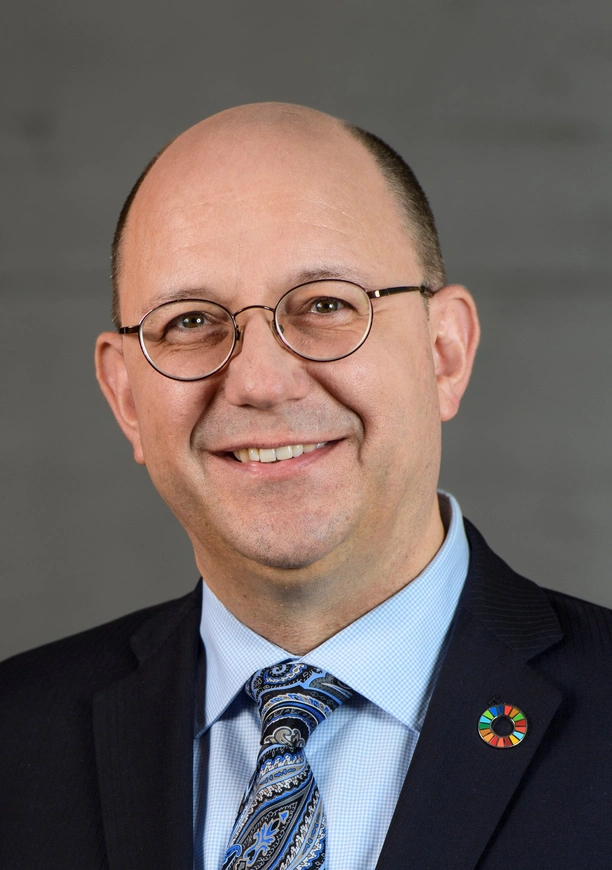
As Co-Chair of the GPEDC and host of its summit, Switzerland is demonstrating a high degree of investment in effective cooperation. Why this commitment?
Thomas Gass: The issue of effectiveness is key to development cooperation and primordial for Switzerland. If the selling point for humanitarian aid is "needs", the selling point for development cooperation is "solutions". And these solutions must be effective in order to convince and mobilise funds, whether from philanthropists or the public sector, i.e. taxpayers. Within the GPEDC, the donor states, the recipient states, civil society and other players regard four key principles as essential for effective cooperation: country ownership, stakeholder participation, a focus on results as well as transparency and mutual accountability.
What is meant by «country ownership»?
In a multilateral framework with very diverse contexts, it is essential to take all stakeholders into account and ensure that they all participate in sustainable development. It is for this reason that we do not speak of ownership only by the authorities, or only by civil society or only by the local populations, for example. There is a consensus that solutions cannot simply come from outside, and that all constituents of a country play a key role in development.
The 2030 Agenda must be a social contract between the state and its people. In the past, accountability was primarily directed at donors. With the 2030 Agenda, the principle of accountability between duty-bearers, states, and rights-holders, the local populations, is central.
What would be good country ownership?
It is about mobilising all the country's strengths, resources and capacities. This includes financial resources, but also reflection, creativity and local enterprise. All these elements must be at the service of sustainable development. All financial flows should also take account of sustainability and, although progress in this area is not sufficient yet, we have already noted positive trends with some boards of financial institutions rethinking their investment strategies.
What is the role of civil society in this social contract?
Ensuring it becomes a reality requires that service providers and central, regional and local authorities are strengthened, but also that people understand which services they are entitled to. They must have access to this information so that the state is accountable to them. Civil society plays a key role in this. It organises people and facilitates relations with the authorities. Indeed, it is essential to measure oneself in relation to this goal. Development agencies such as the SDC and international and local NGOs should ask themselves the following question: Do our actions strengthen the relationship between rights-holders and duty-bearers? This is necessary so that we are not tempted to act on behalf of those with a duty to provide the services, even if circumstances are more difficult in fragile contexts where these providers are absent or weak.
What are the obstacles to increased country ownership?
There are numerous challenges. They are partly related to the business model, such as the donors' desire for quick results. On the one hand, it is difficult to measure the empowerment of local populations unlike, for example, the construction of infrastructure. On the other hand, building capacity, listening to local people and allowing them to influence processes all takes time. Then there are the administrative constraints. When the Grand Bargain agreement was adopted by the humanitarian community in 2016, for example, there was a consensus to give more money directly to local organisations. This, however, requires finding ways of ensuring accountability that can be upheld all the way back to taxpayers in the donor country; grass roots organisations frequently do not have such processes in place.
How to meet these challenges?
The SDC, for example, has had very good experiences with the Urban Local Government Support Project in Mali (PACUM2), aimed at strengthening access to basic services through subsidies and the transfer of skills and resources from the central state to the communes. With technical assistance, it has been possible to provide direct budgetary support to local authorities. This support has facilitated the development of proper financial management, inclusive and participatory planning as well as a system of accountability.
In Nepal, with the support of international NGOs, we are also contributing to the construction of hundreds of bridges and road infrastructure with the help of the local population. They have a say in the choice of route, the way it is built, and they also participate directly in its construction. These projects always start with participatory processes that allow people to see how the project will change the balance of power, how much it will cost and how much of the total budget will go to them through job creation. Right from the planning stage, the population takes ownership of the project, which promotes the maintenance of the infrastructure and improves sustainability.
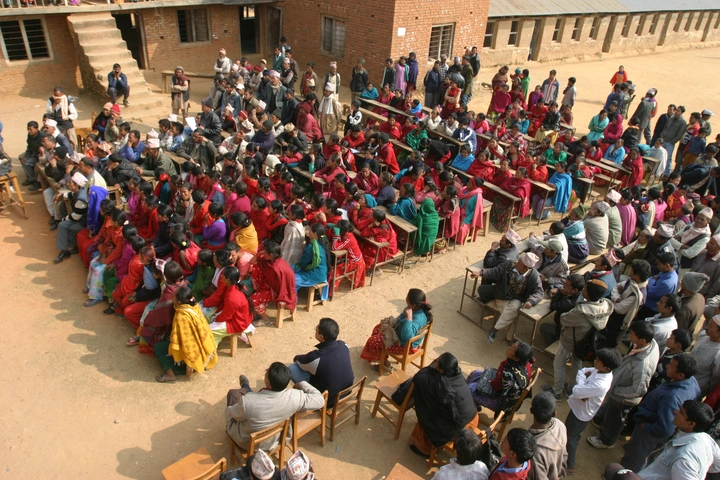
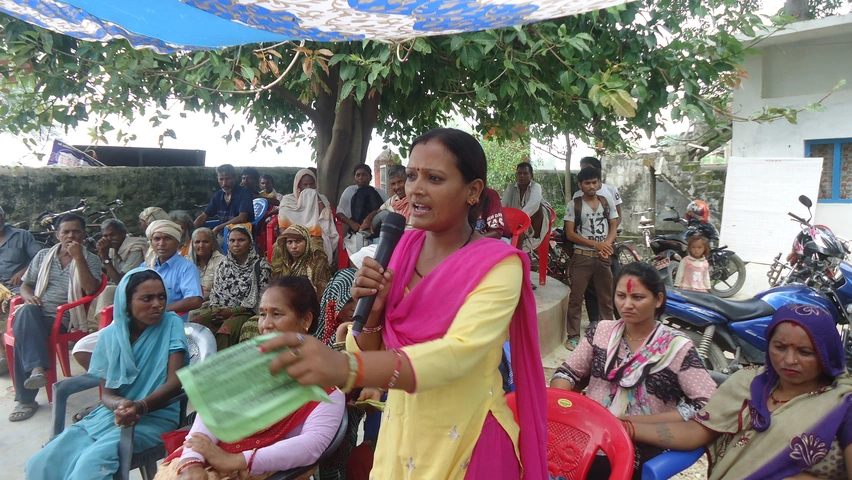
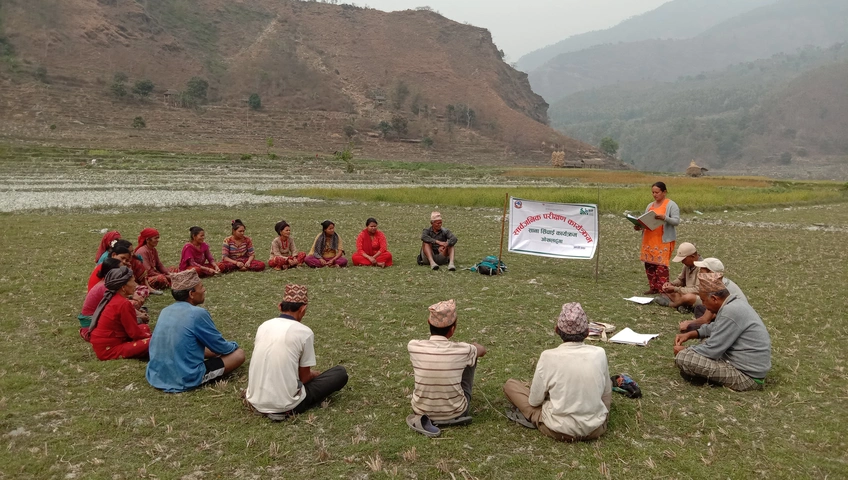
➡️ More information on the >> SDC Motorable Local Roads Bridge Programme
There has also been an increase in the requirements made by donors on the projects or organisations they fund. Is this not contrary to the desire for greater country ownership?
One has to distinguish between the requirement itself, which, generally speaking, all partners accept – not to pay bribes, for example – and the imposition of cumbersome administrative procedures. Sometimes, this is achieved thanks to technology. When rebuilding houses in southern Haiti in the aftermath of Hurricane Matthew in 2016, the use of loaded payment cards allowed purchases without cash payments, which are more risky. One can also build on any existing means of control already in place in the communities. Indeed they may prove more effective than cumbersome administrative procedures. The SDC has had very good results with women's savings groups, for example. The next step is to invest in creating the link between these local context-specific systems and the accountability systems of the donors. It is far from impossible!
Finally, donor countries are now directly impacted by the crisis in Ukraine. Are you worried about a loss of momentum in the implementation of the Sustainable Development Goals?
Yes, of course. Every war destroys lives, damages relations between countries and does harm to the multilateral system. Many achievements are being called into question. This always has an impact on the economy and national priorities. But on the other hand, there are other crises around the world, other conflicts, a food crisis, the climate emergency, the loss of biodiversity and increasing inequality. Today, we need to redouble our efforts in order to implement the goals of the 2030 Agenda.

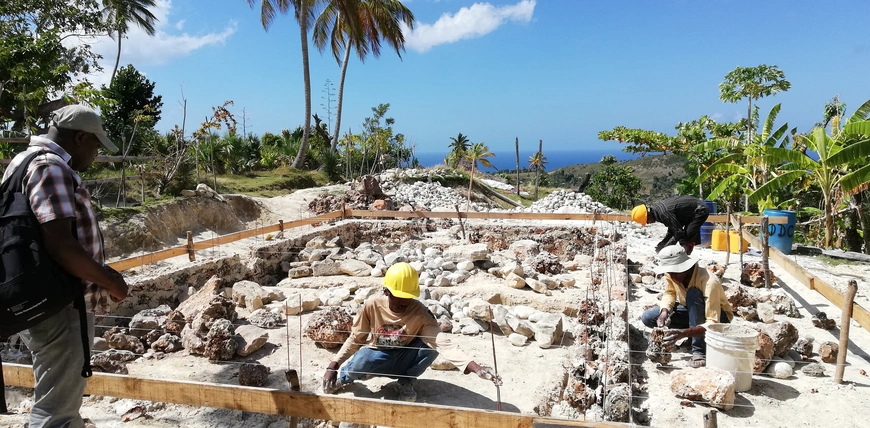
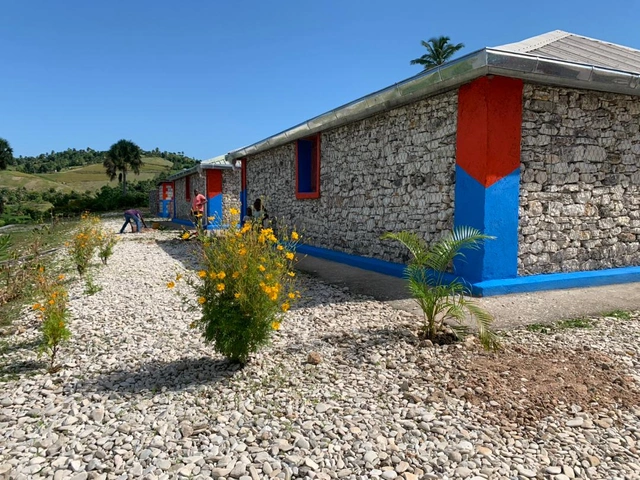
➡️ More information on the >> SDC Motorable Local Roads Bridge Programme

